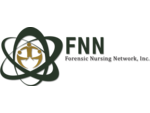Human Trafficking: Considerations for Law Enforcement Professionals
CE Information
2.0 contact hoursCompletion Time
2 hoursAvailable Until
December 31, 2024Posted By
Forensic Nursing NetworkNavigate
Overview
Specialties
ForensicHuman trafficking is a prevalent issue in the state of Ohio. Many law enforcement professionals regularly encounter victims of human trafficking in their line of work – thus, training is essential to ensure that they understand the issue and have the tools they need to properly address it. This training will cover the topic of human trafficking, addressing both sex and labor trafficking. The session will review the vulnerabilities of victims, the demand for sex and labor driven by buyers, and the methods that traffickers use to groom, recruit, and control their victims. The speakers will also engage attendees by reviewing a case study, providing practical advice for identifying victims, building rapport with them, and assisting them in obtaining necessary resources.
Learning Objectives
Law Enforcement:
Objective #1: Define the issue of human trafficking and what it looks like on a national and state level
Objective #2: Equip attendees with practical advice for working with victims of trafficking.
Nursing:
Nursing outcome:
Attendees will have improved knowledge of how to identify and build rapport with victims of human trafficking.
Speakers

Director of the Ohio Human Trafficking Initiative
Linda Majeska Powers serves as the Legal Director for the Ohio Human Trafficking Initiative. In her role, Linda assists task forces, criminal investigators and prosecutors in the criminal prosecution of human trafficking cases. Linda provides specialized instruction and training for law enforcement and prosecutors centering on best practices in the investigation and prosecution of human trafficking cases. She also conducts community outreach on the subject of human trafficking. She previously served as a senior assistant attorney general in the Consumer Protection Section, where she specialized in prosecuting cases of elder and disabled financial exploitation, public corruption and complex white-collar fraud cases as a member of the Economic Crimes Unit. Before joining the Ohio Attorney General’s Office, she was a prosecutor with the City of Elyria. Linda earned a Juris Doctor from the Western Michigan-Cooley College of Law, while she served with the Michigan Attorney General’s Office in the Prosecuting Attorneys Association of Michigan and founded the Crime Victim Advocacy Office in the Eaton County Prosecutor’s Office. Linda received a dual degree from Michigan State University in the majors of James Madison-Justice, Morality and Constitutional Democracy and a Criminal Justice degree.

Anti-Human Trafficking Victim Advocate
Mary Kate Waggoner is a licensed independent social worker, and two-time graduate of the University of Akron. She is passionate about serving marginalized and victimized populations through advocacy work, and the development of effective programs and systems! Her expertise is in providing trauma-informed care to survivors of sexual violence, with a special focus on victims of human trafficking. She is also experienced in program development, policy writing, federal grant management, consulting, and training. Mary Kate has served professionally in the anti-trafficking field as a Crisis Intervention Specialist, and as the Coordinator of the Summit Regional Human Trafficking Task Force. She currently serves as the Anti-Human Trafficking Victim Advocate for the Ohio Attorney General’s Office, where her focus areas are strengthening victim services for human trafficking survivors and providing training and technical assistance for anti-trafficking organizations and groups across the state of Ohio.
CE Information
This activity offers 2.0 contact hours to attendees.
Law Enforcement:
You will need watch the video in its entirety and complete an evaluation with attestation to receive credit for this course.
Nursing:
Criteria for awarding nursing contact hours:
- Watch the complete presentation
- Score of 100% on post-test
- Completion of evaluation with attestation
Disclosures
There are no relevant financial relationships for anyone in a position to control educational content.
Forensic Nursing Network Inc. is approved as a provider of nursing continuing professional development by the Wisconsin Nurses Association, an accredited approver by the American Nurses Credentialing Center’s Commission on Accreditation. (#4002574)
.
This project is supported by Grant No. 2022-ST-SAK-904 “SAK Statewide Collaboration with Law Enforcement” awarded by the Office of Criminal Justice Services, Ohio Department of Public Safety. The opinions, findings, and recommendations expressed in this publication are those of the author(s) and do not necessarily reflect the views of the Office of Criminal Justice Services, Ohio Department of Public Safety.
Activity Content
Registration to this activity includes access to the following supporting materials.
- Save the Dates (Size: 371 KB)
- Agenda (Size: 143 KB)
Duration: about 2 hours | Quality: HD
7 questions
3 questions | 3 correct test question required to pass
Access your certificate
Register For This Activity
Human Trafficking: Considerations for Law Enforcement
This project is supported by Grant No. 2022-ST-SAK-904 “SAK Statewide Collaboration with Law Enforcement” awarded by the Office of Criminal Justice Services, Ohio Department of Public Safety. The opinions, findings, and recommendations expressed in this publication are those of the author(s) and do not necessarily reflect the views of the Office of Criminal Justice Services, Ohio Department of Public Safety.

